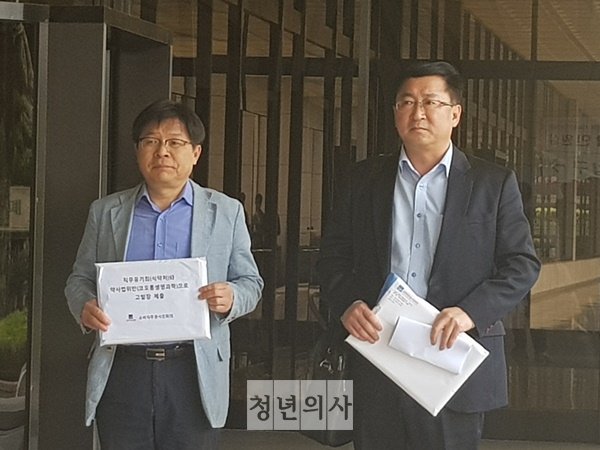A non-government consumer group has complained with the prosecution against Kolon Life Science for the mislabeling of the drug ingredient of Invossa-K, and the Ministry of Food and Drug Safety for poorly assessing the osteoarthritis therapy
Citizens United for Consumer Sovereignty (CUCS) on Tuesday accused Kolon and its CEO Lee Woo-sok of selling the drug that contained unauthorized ingredients in violation of the Pharmaceutical Affairs Act. Besides, the group requested the Seoul Central District Prosecutors’ Office to investigate the MFDS and Food and Drug Safety Minister Lee Eui-kyung for poor licensing and managing of Invossa.

“Among the main ingredients, the cells in the second fluid of Invossa were identified as unauthorized cells (GP2-293 cells), which are banned from being used as a drug ingredient in the U.S. and Europe because of their risk to cause tumors,” CUCS said. “As the company manufactured and sold the unlicensed drug, it violated the Pharmaceutical Affairs Act.”
The civic group went on to say that 2,777 Invossa injections have been supplied to 441 hospitals and clinics across the nation since July 2017. “Patients received procedures because they were informed that the drug was the same one that the ministry approved,” CUCS said.
Invossa injections had 102 adverse drug reactions reported to the Korea Institute of Drug Safety, and Risk Management and three of them were gastric carcinoma, thyroid gland carcinoma, and benign gastrointestinal neoplasm. “The 293 cells, which are infinitely proliferating, cancerous cells, have caused a serious threat to the life and health of patients. This too is a violation of the Pharmaceutical Affairs Act,” CUCS said.
The consumer group also accused the MFDS on charges of dereliction of duty in authorizing and managing drugs.
When the food and drug safety ministry received an application for Invossa approval, it should have obligated Kolon to submit the results of Short Tandem Repeat (STR) testing on all cells used for R&D and manufacturing, CUCS noted.
During the licensing procedure, the ministry also should have verified whether the results submitted by Kolon was correct by conducting cross tests, as well as polymerase chain reaction (PCR) testing, it added.
“MFDS, however, granted the nod for manufacturing and selling the drug only based on a few documents submitted by Kolon. This was neglect of duty which put patients in a dangerous situation,” CUCS said.
Park Hong-su, head of the planning team at CUCS, said the prosecutors should push for an intense probe to reveal whether there was any collusive tie between the MFDS and Kolon and hold them accountable.
“In particular, the investigation has to clarify whether the company intentionally swapped the cell ingredients with 293 cells during clinical trials or covered up the mislabeling,” he said.

